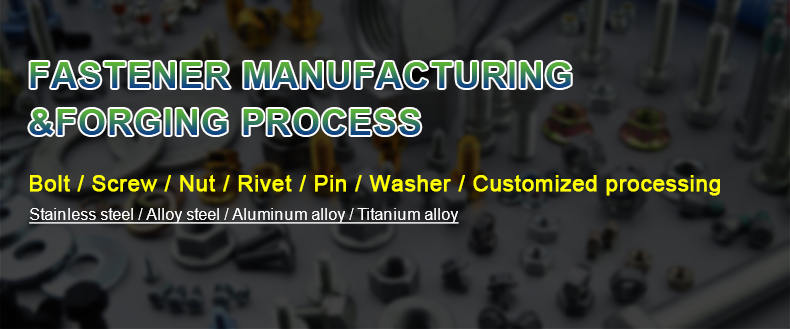
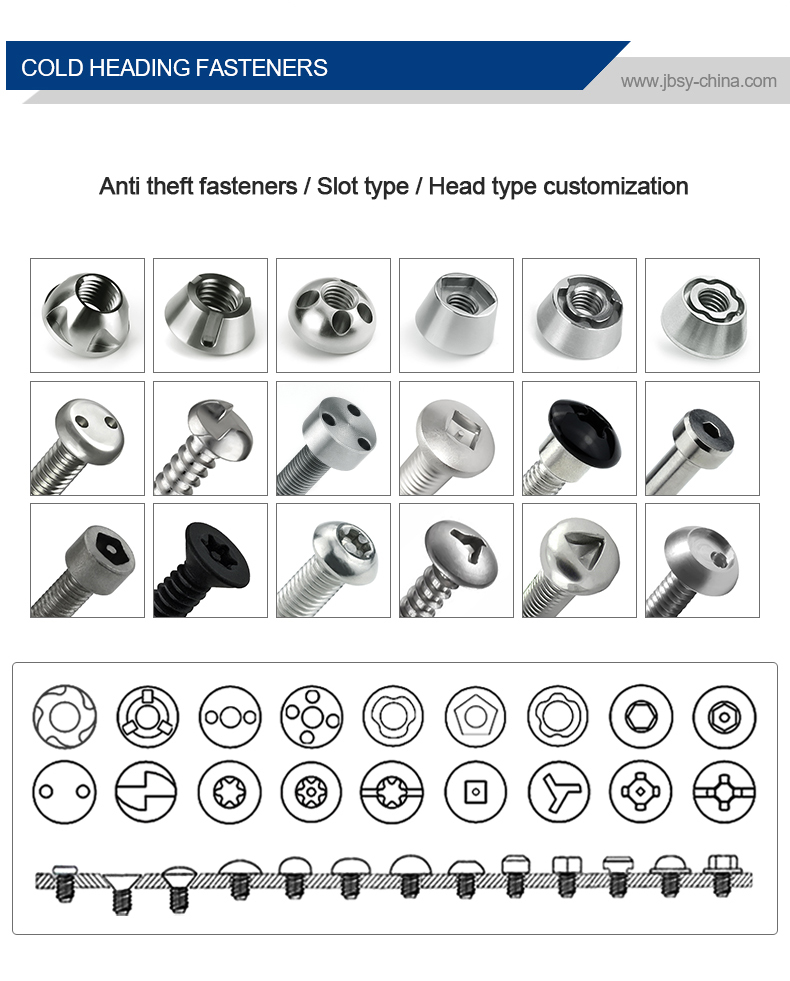
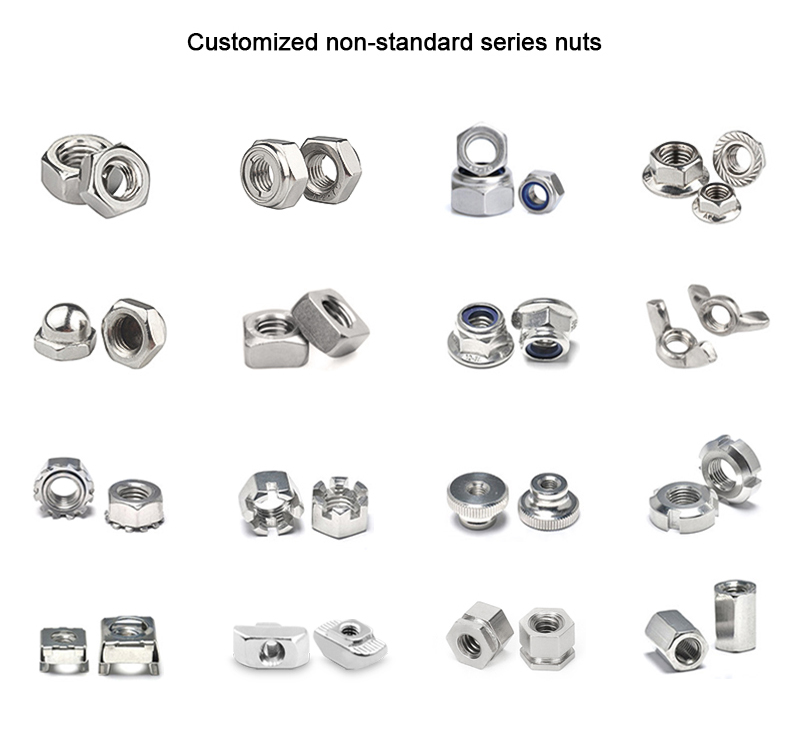
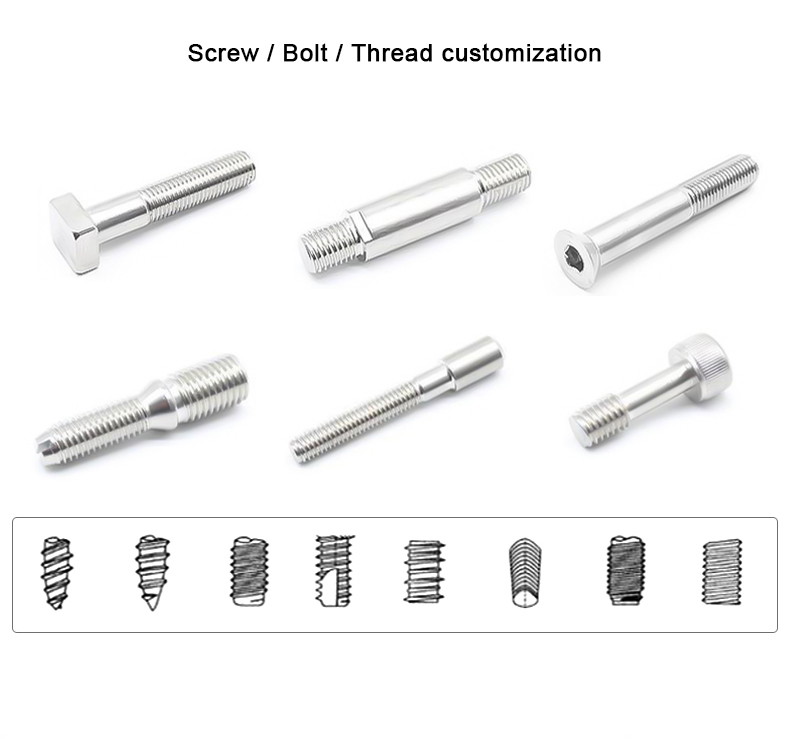
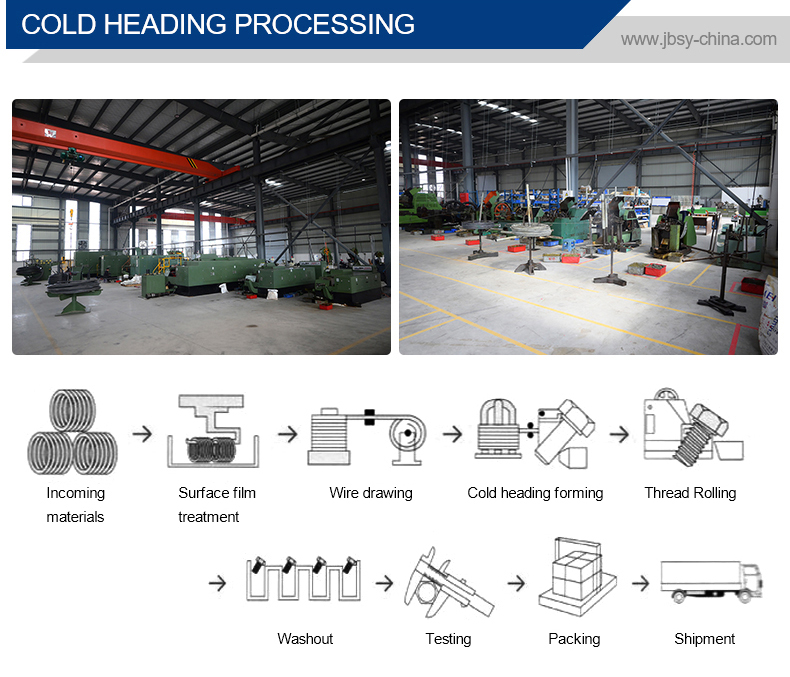
Cold heading process is one of the new processes for pressure machining of less or no cutting
metal. lt is a processing method that utilizes the plastic deformation of metal under the action of
external forces, and with the aid of molds, redistributes and transfers the volume of metal to form
the required parts or blanks. The cold heading process is most suitable for producing standard
fasteners such as bolts, screws, nuts, rivets, and pins.etc
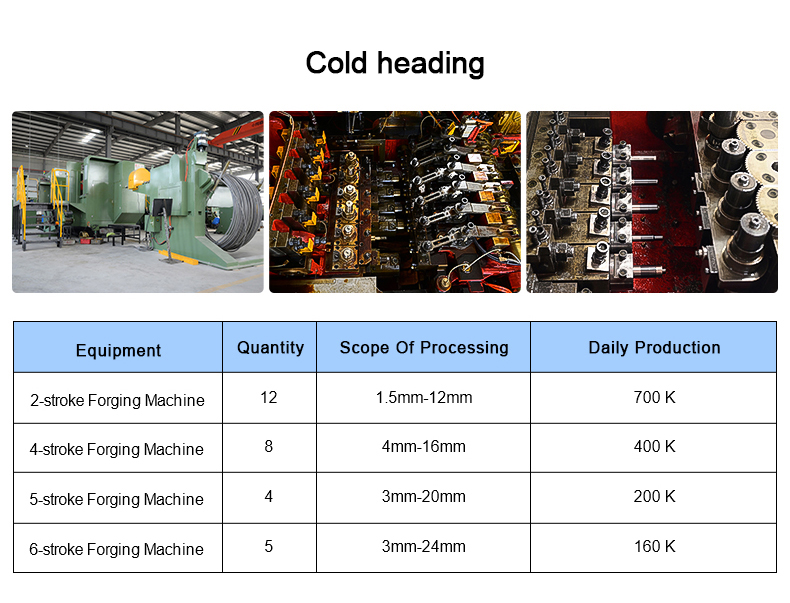
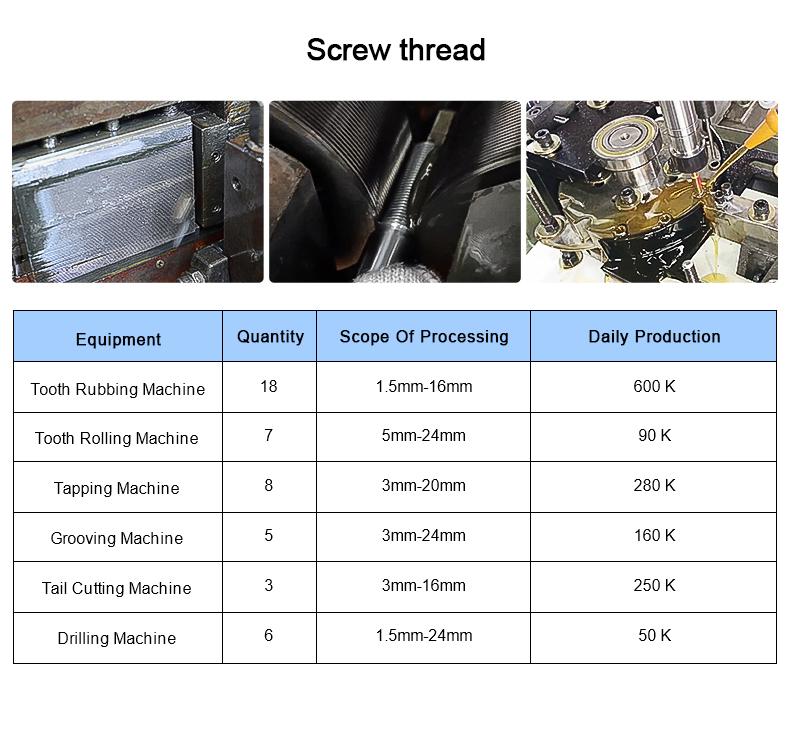
Nuts and bolts manufacturers are companies that specialize in the production of fasteners, which are essential components used to join or secure materials in various industries. These manufacturers produce a wide range of nuts, bolts, screws, washers, and other related fastening products, catering to industries such as construction, automotive, aerospace, machinery, and consumer goods.
1. Product Range:
- Bolts: These are typically metal fasteners with a threaded shaft and a head at one end. Common types include hex bolts, carriage bolts, machine bolts, lag bolts, and anchor bolts.
- Nuts: Nuts are internal-threaded fasteners that pair with bolts. Common types include hex nuts, lock nuts, wing nuts, and cap nuts.
- Washers: Used with nuts and bolts to distribute the load and reduce wear. Types include flat washers, spring washers, and lock washers.
- Screws: Although slightly different from bolts, screws are another threaded fastener that manufacturers may produce.
2. Material Types:
- Steel: The most common material, often used in automotive, construction, and industrial applications.
- Stainless Steel: Known for its resistance to corrosion, it’s used in marine, food processing, and medical industries.
- Brass: Provides excellent corrosion resistance and electrical conductivity, often used in electrical applications.
- Aluminum: Lightweight and resistant to corrosion, used in industries like aerospace.
- Special Alloys: Manufacturers often offer nuts and bolts made from materials like titanium, copper, or specialty alloys to meet specific strength, temperature, or chemical resistance requirements.
3. Customization:
Many manufacturers offer custom bolts and nuts tailored to specific sizes, designs, and specifications. This can include unique thread patterns, coating, or additional features like non-standard shapes, sizes, or finishes.
4. Manufacturing Processes:
- Cold Heading: This involves forming the head of the bolt from a piece of wire without heating the material.
- Forging: Metal is heated and shaped into the bolt or nut.
- Thread Rolling: Instead of cutting threads, thread rolling forms threads through pressure, creating stronger fasteners.
- Injection Molding: For plastic nuts and bolts, manufacturers use injection molding to shape them into the required form.
5. Quality and Standards:
Manufacturers must adhere to various industry standards to ensure their products meet the required specifications. This includes:
- ISO standards (e.g., ISO 9001 for quality management)
- ANSI (American National Standards Institute) standards
- ASTM (American Society for Testing and Materials) standards for material properties
- DIN (Deutsches Institut für Normung) standards (especially in Europe)
6. Finishing and Coatings:
- Zinc Plating: Offers corrosion resistance.
- Galvanizing: A coating of zinc applied by hot dipping for rust protection.
- Anodizing: Used for aluminum fasteners to increase corrosion resistance.
- Phosphate Coating: Adds a layer for better lubrication during assembly and increases corrosion resistance.
7. Supply Chain:
- Bulk Orders: Many manufacturers provide fasteners in bulk for large-scale projects or production runs.
- Custom Orders: They may also fulfill smaller or customized orders based on individual project requirements.
- Global Distribution: Large manufacturers often ship worldwide, with distribution centers and retail partnerships across various regions.
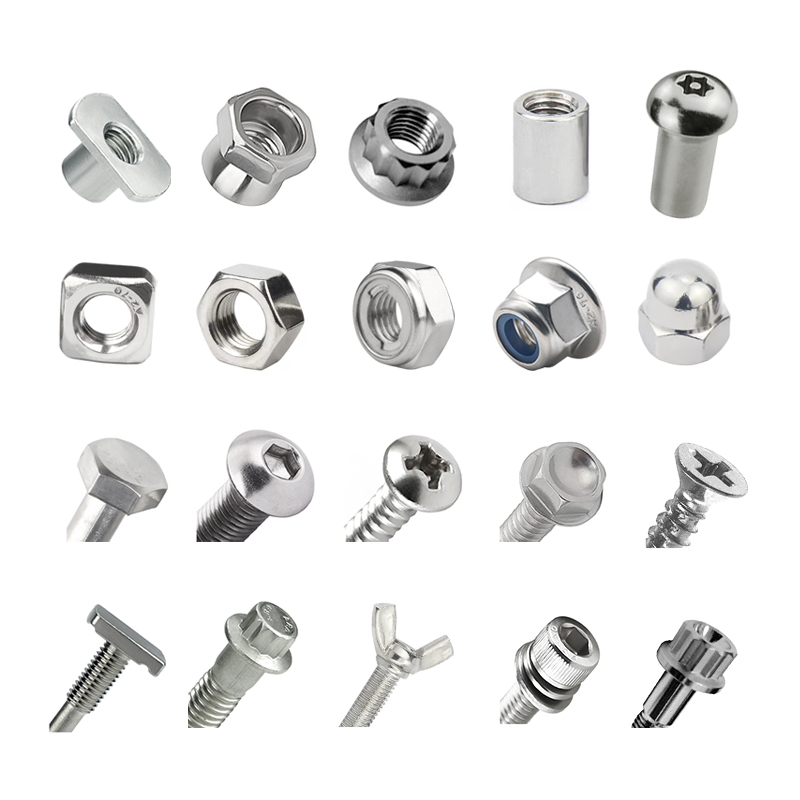
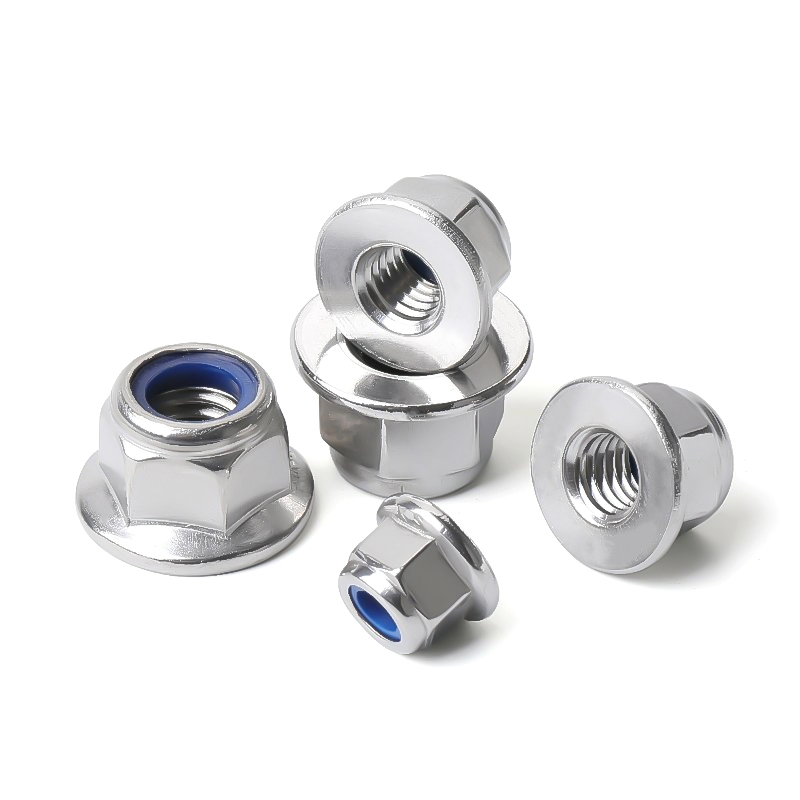
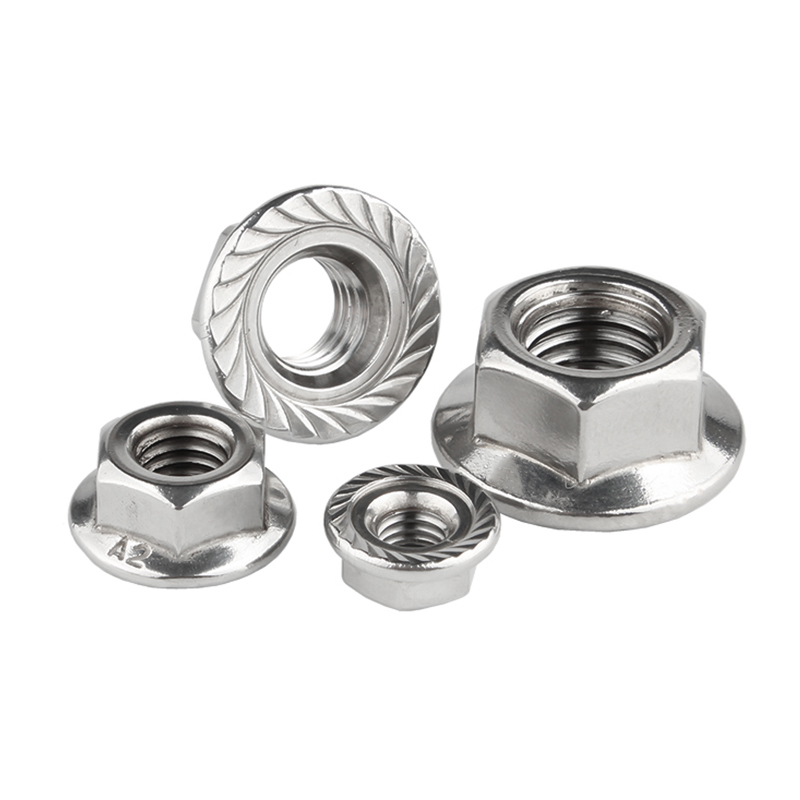

.jpg)
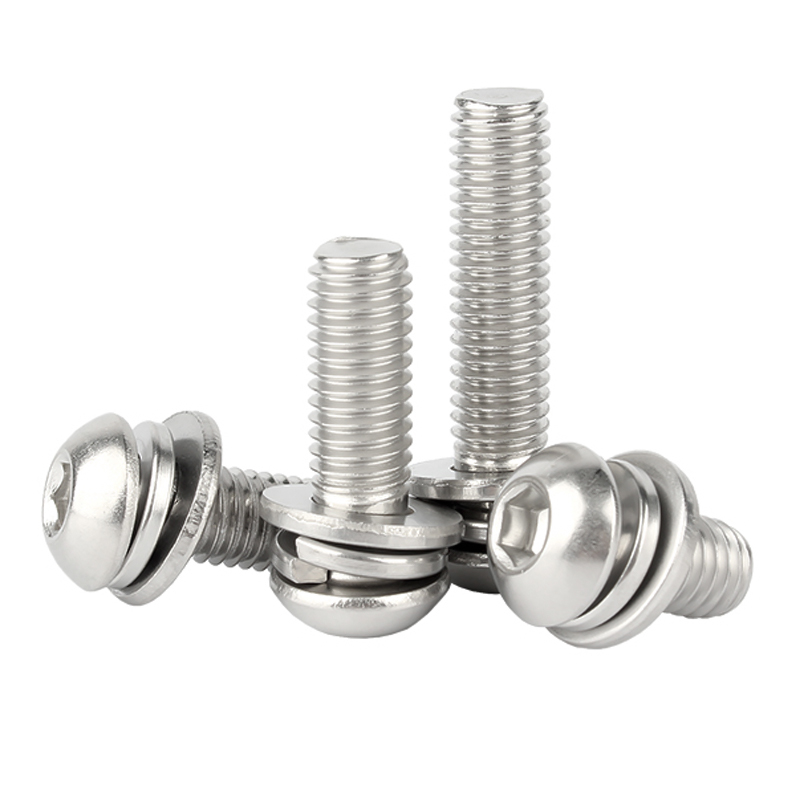
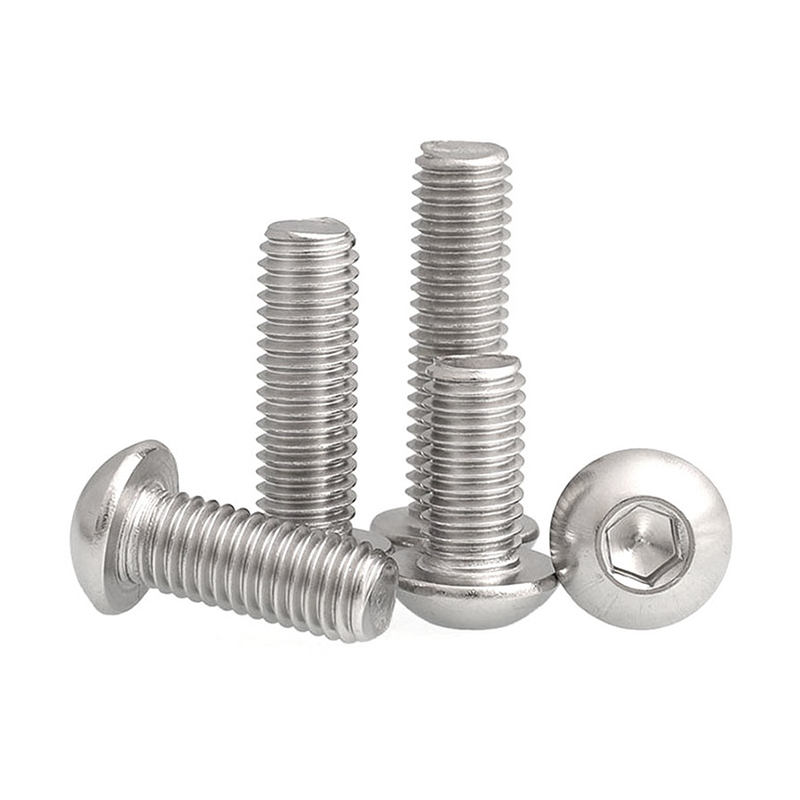
Reviews
There are no reviews yet.